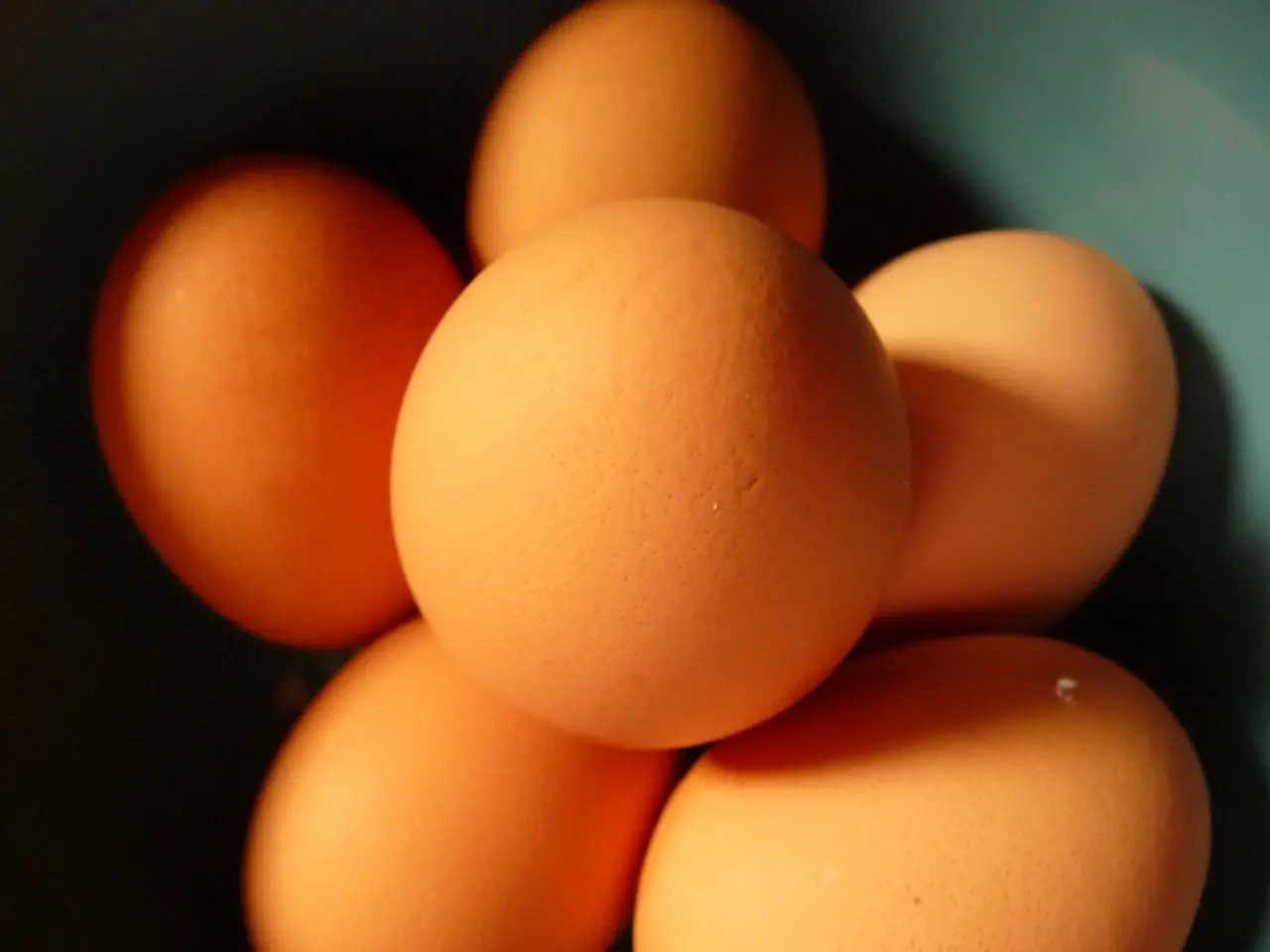California Accused by Trump Administration for Causing Elevated Egg Costs
In a recent development, the Department of Justice (DOJ) under the Trump administration has filed a lawsuit against the state of California, challenging Proposition 12 and related animal welfare laws that regulate hen housing conditions for egg production.
The lawsuit, filed in a Los Angeles federal court, argues that these laws violate federal statutes such as the Egg Products Inspection Act (EPIA) and impose burdens on interstate commerce by effectively banning eggs from hens raised in traditional cage systems. The DOJ contends that California’s standards cause a nationwide increase in egg prices, claiming a 20% rise since these laws were implemented.
Background
Proposition 12, enacted in 2018, mandates that eggs sold in California come from hens housed in cage-free environments that allow them to stand, lie down, turn around, and extend limbs fully. The law also applies similar welfare standards to pigs and calves raised for veal.
The California laws targeted include Proposition 2 (2008), AB 1437, and Proposition 12, all aiming to improve living conditions for farm animals, especially egg-laying hens.
Legal Status
The lawsuit represents a renewed attempt to overturn California’s animal welfare laws following a prior Supreme Court case in 2023 that upheld Proposition 12 but without a clear majority, leaving some constitutional questions open. The case is expected to progress through appeals and may ultimately reach the Supreme Court again. The Court's current composition is similar to when it upheld the law in 2023, making the final outcome uncertain.
The lawsuit also involves arguments about whether California’s housing requirements constitute impermissible "conditions or qualities" standards on eggs under federal law, and whether they improperly add to federal labeling requirements.
Impact on Egg Prices
The Trump administration associates California’s animal welfare-driven production standards with increased egg prices nationwide due to higher farming costs and reduced availability of traditionally produced eggs. However, opponents, including animal welfare groups like Humane World for Animals and industry representatives such as the American Egg Board, argue that factors like avian influenza played a significant role in driving up egg prices in 2025, not Proposition 12 or animal welfare laws.
The American Egg Board asserts that many producers voluntarily shifted toward cage-free systems responding to consumer demand, and the industry continues to offer diverse egg options despite these laws.
In the midst of this legal battle, the bird flu outbreaks at the beginning of the year caused supply and demand volatility, leading to egg shortages and purchasing limits in some stores. A new report from Purdue University reveals that gardening is both a hobby and a practical task for inflation-weary consumers.
As the case unfolds, it remains to be seen how the Supreme Court will rule and what impact it will have on the egg industry and consumer prices.
Politics and general news continue to swirl around war-and-conflicts as the Department of Justice (DOJ) under the Trump administration files a lawsuit against California's policy-and-legislation regarding animal welfare laws, specifically Proposition 12, that regulate hen housing conditions for egg production. This lawsuit could potentially affect crime-and-justice matters, such as the impact on egg prices, if the Supreme Court rules in favor of the DOJ, causing uncertainty in the egg industry and consumer prices.








